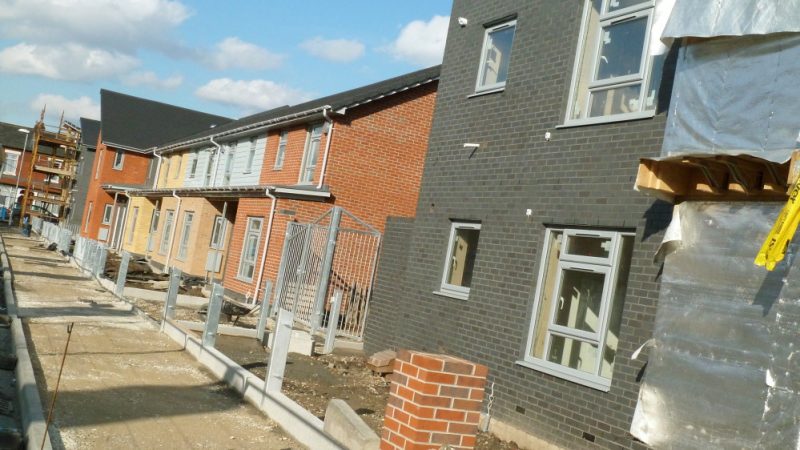Planning committees are often dominated by councillors whose decisions reflect political convenience and vocal local opposition rather than the broader public interest.

Christopher Worrall is a housing columnist for LFF. He is on the Executive Committee of the Labour Housing Group, Co-Host of the Priced Out Podcast, and Chair of the Local Government and Housing Member Policy Group of the Fabian Society.
The government’s proposal to overhaul the planning system, including potentially bypassing local authority committees for certain developments that are local plan compliant, is an overdue and essential step to addressing the UK’s chronic housing crisis.
Announced alongside plans to give expert professional planners more decision-making authority, these reforms aim to tackle the inefficiencies and inconsistencies that have long plagued the current system. As YIMBY advocates, we must embrace this change as a political and social necessity. I encourage all YIMBYs to welcome the Planning Reform Working Paper on Planning Committees and support these changes.
A Broken System in Need of Reform
Under the current structure, local authority planning committees play a pivotal role in determining whether development proposals proceed. However, these committees are often dominated by councillors whose decisions reflect political convenience and vocal local opposition rather than the broader public interest. As Nick Cuff argues, the democratic mandate for planning committee members are weak. With the average planning committee member sitting on just 19 per cent of the overall registered electoral vote within their specific ward.
Shockingly, no less than 15 Local Planning Authorities refused 1 in 2 planning submissions for residential development last year, of which 80 per cent were based in either London, the South East, or East of England. Mole Valley in Surrey had the highest amount of refusals for major new housing developments, with 77 per cent of decisions refused. And this is just the ones that make it to committee. It is the industry’s worst kept secret that officers are lobbied to push for refusal, often deterring those would be schemes to come forward.
We also know there has been a “staggering increase” in the number of refused applications being overturned at appeal. On average 28 per cent of schemes refused are then overturned at appeal, which approaches nearer 60 per cent for larger schemes that reach public inquiry. This is because all too often housing developments are rejected at the committee stage despite receiving recommendations for approval from professional planning officers. It reflects a worrying pattern where expertise and evidence are overridden by subjective, and often parochial, considerations.
Such decisions have far-reaching consequences. Delays, unpredictability, and outright rejections stifle the delivery of housing and infrastructure desperately needed to meet the Labour governments ambitious housing target of 1.5 million homes. This dysfunction also discourages investment in communities and exacerbates housing shortages, driving up costs for renters and buyers alike.
The YIMBY Perspective: Building for the Greater Good
The proposed reforms align closely with the YIMBY ethos—fostering a sustainable and thoughtful approach to development that benefits society as a whole. While local input is vital, it should not come at the expense of addressing Britain’s dire need for housing, especially affordable homes. The current system empowers a vocal minority to block projects, often for reasons of convenience or aesthetics, sidelining the interests of the majority who would benefit from more housing, better infrastructure, and economic growth. Often rejecting schemes already outlined in the local plan, which has already followed a politically-led democratic process.
Streamlining the process by reducing the reliance on planning committees and empowering professional planners is a necessary correction. These changes will create a more transparent and predictable system, ensuring developments are assessed based on their merits rather than their political palatability. This is not about undermining local democracy but enhancing it—shifting the focus toward long-term, evidence-based decision-making that prioritises community well-being – overseen by technical experts in planning policy. Not rabid whimsical NIMBY councillors.
The Political Necessity of Reform
Politically, this reform is both timely and essential. The housing crisis has become a key electoral issue, with younger generations facing soaring rents and limited opportunities to own homes. Failing to address the systemic barriers to housing supply risks alienating a significant voter base. Conversely, bold reform that delivers results could secure long-term political and economic benefits. As recently outlined by Labour Students Chair, Issy Waite, at the Labour YIMBY Christmas Party, the proposed reforms are “about our generations future”.
Critics will argue that bypassing committees reduces local accountability. However, this overlooks the fact that local democracy should not be synonymous with inefficiency. The majority of residents resultant from the changes will benefit from an adequate supply of housing and vibrant, well-planned communities. A professional, streamlined process will not eliminate local input but will place it within a framework that prioritises fairness, expertise, and the greater good.
A Brighter Future for Housing
The government’s proposed reforms are a critical step toward solving the housing crisis and creating a planning system fit for the 21st century. By limiting the power of planning committees and empowering professional planners, Britain can move closer to a housing market that works for everyone—not just those lucky enough to own homes already. It is time to seize this opportunity and say “yes” to a more sustainable, equitable future.
Left Foot Forward doesn't have the backing of big business or billionaires. We rely on the kind and generous support of ordinary people like you.
You can support hard-hitting journalism that holds the right to account, provides a forum for debate among progressives, and covers the stories the rest of the media ignore. Donate today.



